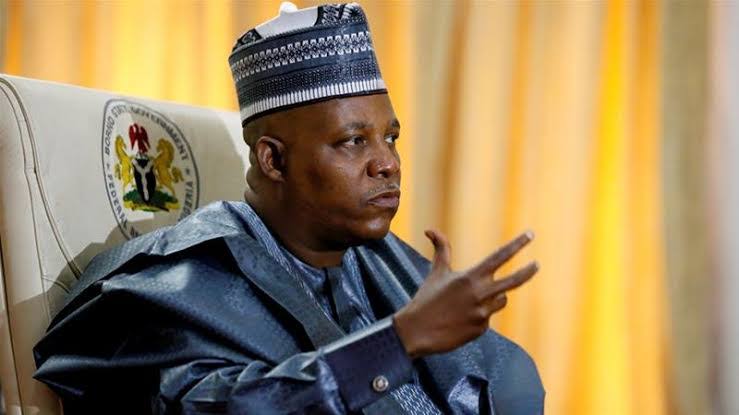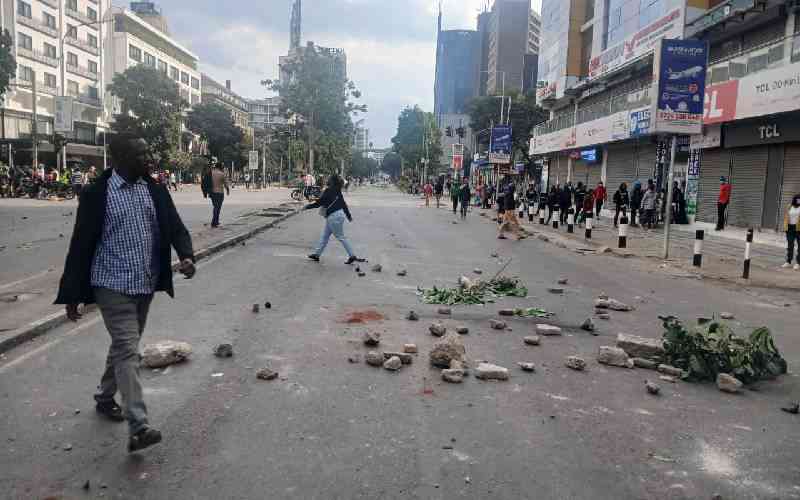An Indian diplomatic offensive aims to rally international support for its chosen strategy to combat terrorism. While Singapore’s commitment to the cause is beyond question, its approach to counter-terrorism differs from India’s and must remain so, say CHERIAN GEORGE (Hong Kong Baptist University) and SHYAM TEKWANI (Daniel K. Inouye Asia-Pacific Center for Security Studies).
The delegation of Indian parliamentarians is on its way to Singapore as part of India’s diplomatic offensive following the murder of 26 tourists in Indian Administered Kashmir on 22 April. On its surface, the mission appears to be asking India’s friends to do something Singapore has always done — to stand together with other peace-loving nations to combat violent extremism. Much more than in most other countries, a sense of vulnerability to external dangers is lodged deep in Singapore’s national psyche. Vigilance against terrorism has long been regarded as a whole-of-nation enterprise, a job not only for security agencies but for every Singaporean.
For this reason, the visit by the Indian delegation — comprising seven members of parliament from various parties, a former minister, and an ambassador — is likely to be uncontroversial and even unremarkable. The delegation can expect to be greeted with warmth and respect by whomever they meet. Nothing in the visitors’ experience will disrupt Indian mainstream media’s pronouncements that the tour was an unqualified success and that India has picked up one more ally in its global war against terror.
Indeed, Singapore’s stand on terrorism is no less uncompromising than India’s. But while Singapore finds common cause with other countries on this front, there are important distinctions in the republic’s approach to security. Singapore should not — and probably will not — adopt the current Indian government’s agenda wholesale.
India’s unprecedented roadshow, with seven delegations fanning out to every populated continent, has specific goals beyond the task of building an international consensus against terrorism. The sharper intent is to reframe its dispute with Pakistan as a global crisis precipitated by its neighbour. Thus, India hopes to isolate Pakistan diplomatically, legitimise its own assertive actions, and shape future counterterrorism norms.
So far, India has not presented credible, verifiable evidence linking Pakistan to the attack in Pahalgam. It is possible that its agencies will eventually share damning proof of Pakistan’s involvement. But it is also possible that these claims, amplified by India’s servile television news programmes, cannot be substantiated and instead serve other purposes. The Pahalgam attack has raised glaring questions about intelligence preparedness and internal security lapses, but blaming a foreign country means that any Indian who voices such questions can be branded a traitor.
India’s expansive diplomatic campaign, though couched in the language of principle and consensus-building, may well be an exercise of narrative control to rally domestic sentiment while deflecting external scrutiny at a time of heightened geopolitical ambition and reputational fragility for the Modi government. India has, for example, faced allegations of involvement in extraterritorial assassinations targeting Sikh separatists based in Canada and the United States as well as political interference in Australia. Amplifying its own narrative of victimhood can help build moral cover.
Ahead of the Southeast Asian leg of the delegation’s tour, Indian news channel hosts were even declaring that Pakistan was behind terror attacks in Indonesia and the Philippines as well as the thwarted 2001 attempt in Singapore. These are the same media that took disinformation to astonishing new depths when India and Pakistan were trading fire, so it is unlikely that Southeast Asian security agencies and analysts will take them at their word. Again, the intended audience is domestic. Pakistan-bashing sells well among many Indians, who — like most nationalities in a world craving the security of group identities — don’t just stand up for their flag but also let it cover their eyes, ears and mouths.
Aside from the particularities of India’s quarrel with Pakistan, there are other aspects of its current approach to terrorism that Singapore should — and does — stay clear from. Not just India but also Pakistan and other South Asian states tend to confuse military suppression with political resolution, conquest with consent, and erasure with reconciliation. By failing to address minority communities’ underlying grievances, and worse, by treating entire ethnic groups as suspects, they perpetuate resentments and till the ground for further violence.
Singapore’s approach to security has been much more holistic. As a multi-racial, multi-religious country, it is not into collective punishment of any community in retaliation for the conduct of the errant few. Consider how the government responded to the revelation of an Islamist terror plot in 2001. “Having pre-empted the physical attack and neutralised the group, we immediately strove to reinforce trust and confidence between the religions,” Lee Hsien Loong, who was then prime minister, has recounted. “We talked openly about the danger, so that everyone knew these were the actions of extremists who did not reflect the views of Singapore Muslims in general.”

The All-Party Delegation in Japan. One of seven delegations, this group is covering East Asia, including Singapore.
Singapore’s approach ensures that the virus of violent extremism meets strong resistance from the entire body politic, comprising at the core its 3.6 million citizens. Above all, this is achieved by convincing Singaporeans that there is absolutely no justification for resorting to violence, because the system aims to treat everyone with equal dignity. Even if this is still a work in progress, Singaporeans do not question the validity of the nation’s founding principles — that they are one people regardless of race, language, or religion.
Therefore, it would be intolerable for any Singaporean — whether Chinese, Malay, Indian, Eurasian, Buddhist, Taoist, Christian, Muslim, Hindu, Sikh, or of any other colour or creed — to be told to go “back” where they supposedly came from. The suggestion that any Singaporean does not truly belong or is second-class on account of one’s ethnic identity is repulsive to most citizens, and strongly resisted by the state.
It is in this respect that Singapore’s state-society consensus diverges dramatically from the current Indian government’s ethno-nationalist “Hindutva” project. Of course, the Indian state has been savvy enough to conceal its intolerant face in its current diplomatic campaign: the make-up of its delegations is not only multi-party but also multi-religious. But this is the for-export version of India’s response to violent extremism. Domestically, since long before last month’s terror attack, the country’s 170 million Muslims have been made to feel second-class, if not like the enemy within. Ruling party politicians and their supporters have openly told Muslim Indians that they belong in Pakistan. Lynchings and the destroying of mosques deliver the same message.
Since the Kashmir incident, hate speech against Muslims has escalated with impunity. A state minister belonging to the ruling party even called an Indian army spokesperson a “terrorist’s sister” because she is a Muslim woman (in addition to being a colonel and coming from a military family). Supreme court judges blew the offside whistle, but his superiors took no action.
Singapore’s very different approach enjoys strong state-society consensus. But it is not impervious to challenge. It is a small and open society, and the most religiously diverse country in the world. Every racial and religious group in Singapore has links with larger communities overseas belonging to the same race or religion. These influences benefit Singapore but also sometimes result in the import of worldviews that are not compatible with the republic’s own formula for peaceful coexistence. These problematic ideas include jingoistic cha1uvinism from the People’s Republic of China, Islamist extremism from Indonesia, neo-Nazi ideologies from Europe and the United States — and casteism and Hindu nationalism from India.
Extremist religious ideologies from Singapore’s Muslim neighbours have long been the most salient threat, but security experts in Singapore have more recently expressed concern that the promotion of Hindutva’s exclusionary language and ideas could cause tensions between communities and threaten social stability. Singapore has expatriates and migrant workers from all parts of the Indian subcontinent, as well as Singaporeans whose forefathers came from what is today India and Pakistan, and who today live in peace.

Singapore Ministry of Home Affairs’ SGSecure campaigns emphasise bringing communities together in preparation for terrorist attack.
“Therefore, it is crucial for the relevant bodies to monitor the spread of diasporic Hindu nationalism, just as they monitor and take action (if necessary) against other forms of extremist thinking that could affect social cohesion,” writes one analyst at the Rajaratnam School of International Studies at Nanyang Technological University.
The post-9/11 Global War on Terror offers cautionary lessons. In its name, the United States made some of its most self-destructive and catastrophic mistakes of its 21st century history. We know now that counter-terrorism cannot be a substitute for conflict resolution. Externalising blame without domestic introspection leads to policy dead-ends. Excessive use of force fuels radicalisation, both at home and abroad. And militarising or securitising what is often political in origin is counterproductive.
President Joe Biden cautioned Israel not to make the same mistakes after the attacks of October 7, 2023. Israel paid no heed and, like the US before it, has lost considerable moral authority as a result. India’s own cross-border war on terror is, fortunately, more diplomatic than military. But it too may be undermined by its own overreach and unsubstantiated claims, feeding others’ perceptions that it is driven more by domestic politics than international principle.
India’s political landscape is infinitely more complex than Singapore’s, so the delegation’s Singaporean interlocutors would not dream of advising India how to manage its affairs. But Singapore, too, has its own history and its own national vision. If the Indian delegation is in the mood for dialogue — rather than the chest-thumping diatribes its mainstream TV news hosts indulge in — it may discover on its visit that Singapore has its own comprehensive approach to security, and why India’s approach cannot be Singapore’s.
– Cherian George is a professor at Hong Kong Baptist University’s School of Communication. Shyam Tekwani, who worked at Nanyang Technological University’s School of Communication and Information from 1999 to 2009, is a professor at the Daniel K. Inouye Asia-Pacific Center for Security Studies in Honolulu.










